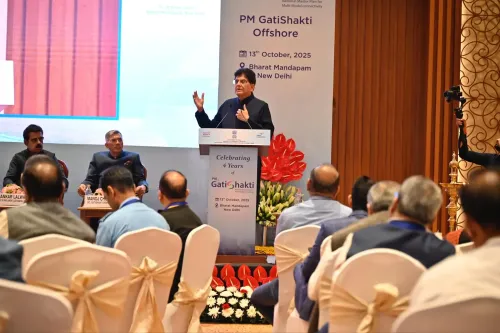Did the Kerala HC Dismiss the PIL Against Arundhati Roy’s Book Cover?

Synopsis
Key Takeaways
- The Kerala High Court dismissed a PIL against a book cover.
- The court emphasized the jurisdiction of statutory authorities over such matters.
- A disclaimer regarding smoking appears on the back cover of the book.
- The court cautioned against the misuse of PILs for publicity.
- The ruling reinforces the need for proper legal examination in PILs.
Kochi, Oct 13 (NationPress) The Kerala High Court has dismissed a public interest litigation (PIL) that contested the cover of Arundhati Roy’s latest book, "Mother Mary Comes to Me", which shows her smoking a cigarette without the legally required health warning.
A division bench led by Chief Justice Nitin Jamdar and Justice Basant Balaji pointed out that the petitioner, advocate Rajasimhan, did not mention that a smoking disclaimer is present on the back cover of the book.
The court emphasized that this matter falls under the jurisdiction of statutory bodies established by the Cigarettes and Other Tobacco Products Act, 2003 (COTPA), rather than the High Court's writ jurisdiction.
"Given the statutory framework established by the COTPA Act and its associated regulations, such concerns should be addressed by expert bodies created under the Act after consultations with involved parties," it stated.
The court also expressed skepticism regarding the petitioner's intentions, noting that he had ignored advice to approach the appropriate authority. The bench remarked that the plea was submitted without thorough legal scrutiny or fact verification, including the existence of the disclaimer, and warned against the misuse of PILs for gaining publicity.
The petitioner argued that the book cover glorifies smoking as an emblem of intellectualism, potentially influencing impressionable youth, especially women.
He claimed that the lack of a statutory warning constituted an indirect advertisement of tobacco products, breaching Sections 7 and 8 of the COTPA, and requested a halt to further distribution of the book as well as a requirement for its re-publication with suitable health warnings.
In rejecting the plea, the bench reiterated that regulatory issues should be resolved through appropriate statutory mechanisms and are not suitable for resolution via PILs.









